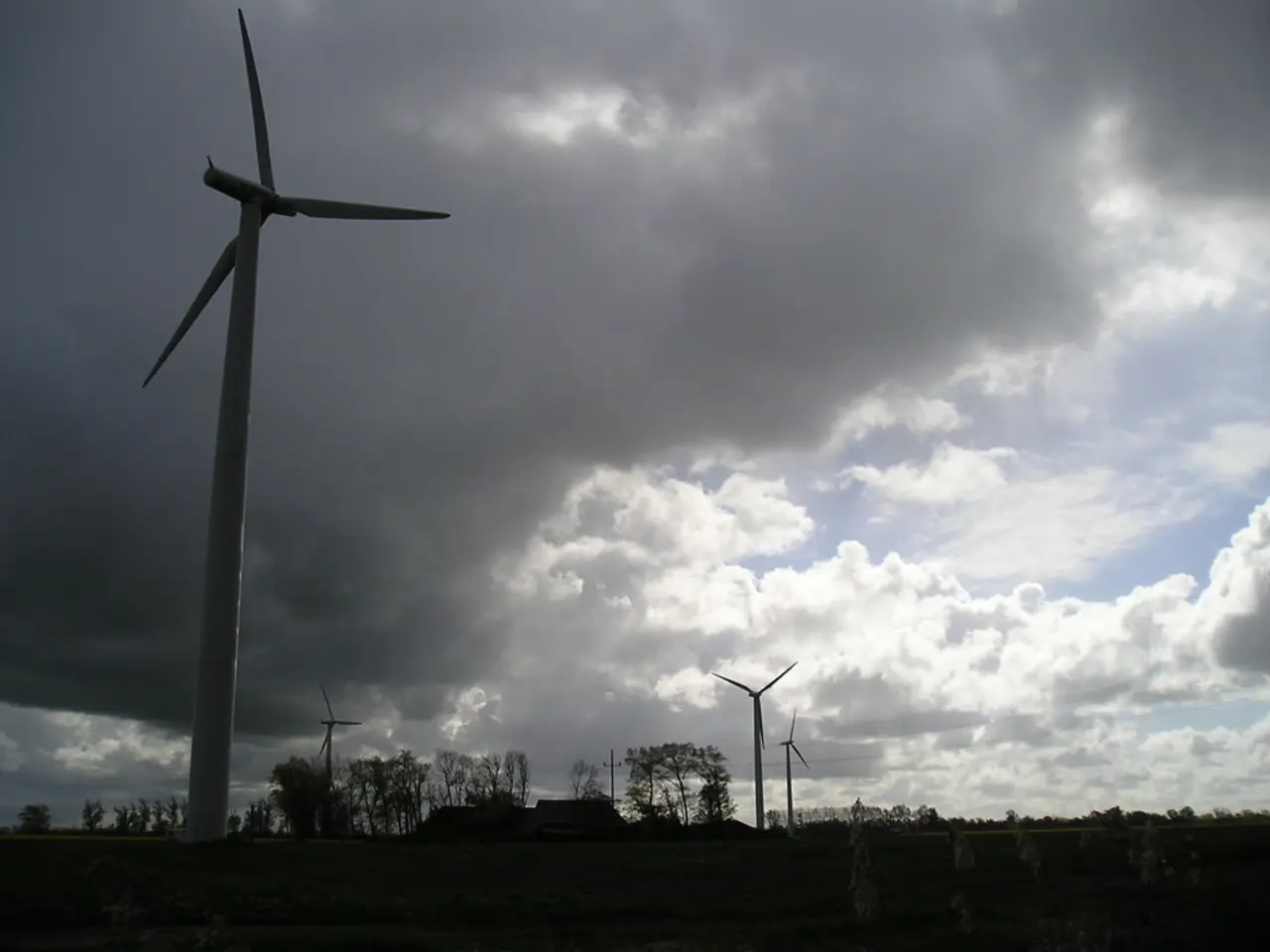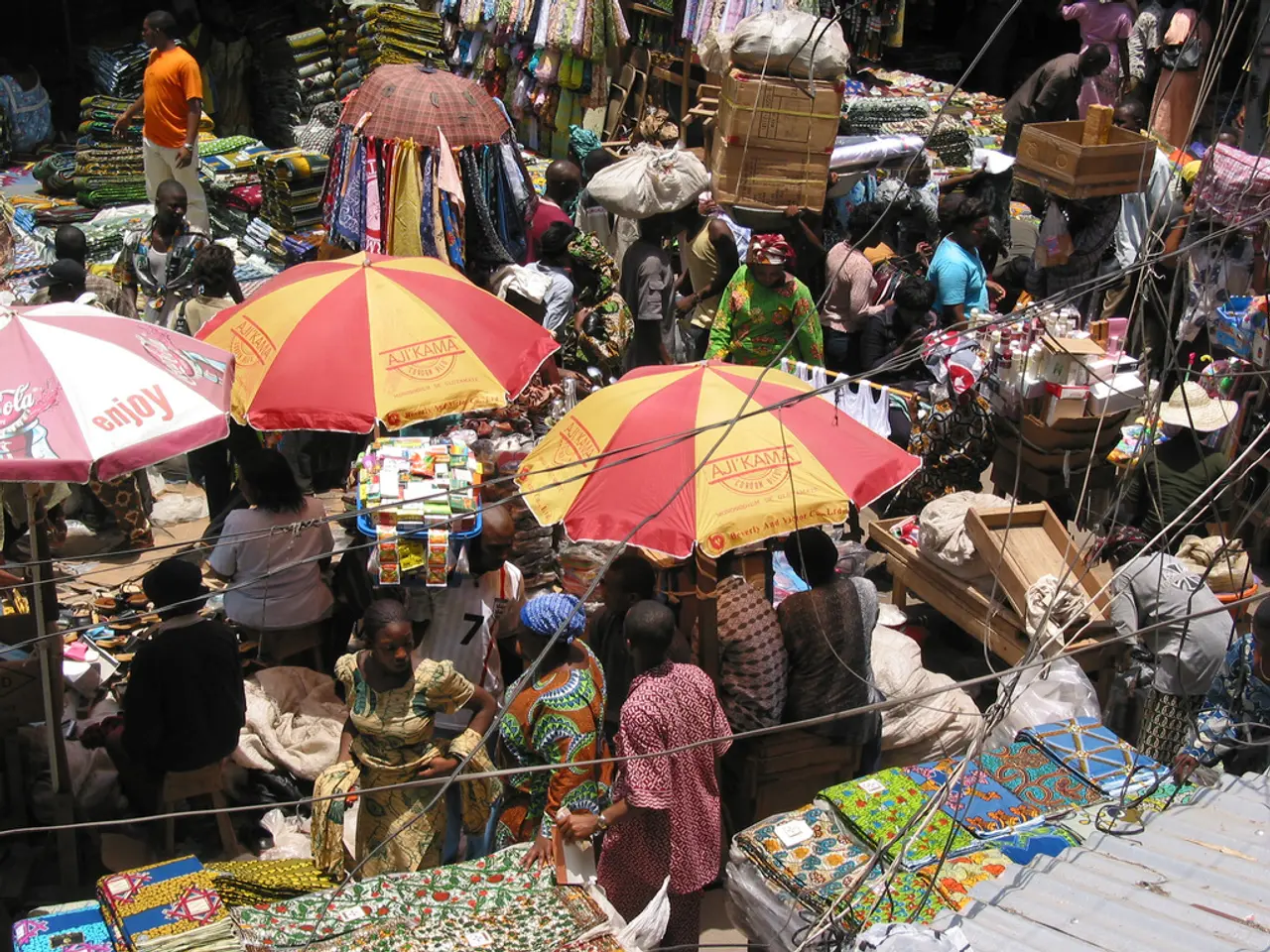Global Investors Enthralled by Booming Property Market in Indonesia
Revitalized Real Estate Horizons in Indonesia: A Hotspot for Global Investors
Indonesia's real estate sector is undergoing a dynamic metamorphosis, presenting captivating prospects for foreign investors. With a thriving construction industry and a skyrocketing urban populace, this Southeast Asian nation is poised to eclipse economic giants like Germany, Japan, and the UK, aiming for the fourth position globally by mid-century. A robust average yearly GDP growth exceeding 5% ensures a brighter economic outlook compared to the global norm.
The burgeoning cityscape of Indonesia owes its vitality to an extraordinary 780,000 new households brewing annually until 2045, due to increased birth rates and rapid urbanization. This demographic shift fuels growing demand for housing, propelling property prices ever higher. Furthermore, the increasing prosperity of families expedites their migrations from shabby accommodations to newly erected, lavish residences.
However, the supply side of the equation is nearing its ceiling, with leading developers grappling with overleveraging concerns, looming maturities, and restricted avenues for expansion. This supply-demand disparity lends a glowing allure to the Indonesian property market, offering the potential for significant price escalation.
The Indonesian real estate market offers an irresistible allure for investors, thanks to residential prices significantly lower than neighboring countries. As per Numbeo statistics, the average square meter price in an Indonesian city center merely scrapes past $1,600—a fraction of the cost one would encounter in comparable nations.
But it's essential to remember that Indonesia's property prices are comparatively budget-friendly for a significant reason. Only one in five Indonesian families can afford a commercial market home, leaving more than 6 million people, or 2% of the population, homeless.
Historically, the Indonesian government has been cautious about letting affluent foreign investors infiltrate the real estate market. Foreigners can only own leasehold properties for 80 to 100 years without mortgage financing, not freehold ones. The minimum purchase price for foreigners ranges from $65,000 for an apartment in Northern Sumatra to $325,000 for a villa in Jakarta or Bali, according to a leading online property platform Housearch.com. These measures have endeavored to maintain housing affordability for locals while affecting the profitability of the construction sector.
In 2021, Indonesia began dismantling some of the barriers restricting foreign property purchases, such as the long-term residence permit requirement and ownership laws. However, the reform has not been particularly effective, with only around 200 foreigners securing properties without local representatives in 2023. The sluggish implementation, intricate registration procedures, and requests for resident IDs have impeded its success.
Recognizing the pivotal role that the construction sector plays in propelling GDP growth, Indonesia is increasingly intent on bolstering foreign investor engagement in its housing market, chiefly focusing on the premium segment. There is widespread speculation that the government might eventually sanction full freehold ownership for foreign individuals in specially designated regions akin to free-zone styles.
Indonesia has rolled out a series of visa initiatives to entice immigrants, including the 'second home' visa lasting for up to 10 years for individuals sustaining a stable income and savings exceeding $130,000. Additionally, the government has recently introduced the 'golden visa' program tailored for millionaires, as well as actively exploring the possibility of introducing a 'digital nomad' visa catering to young professionals engaged in remote work.
Despite the limitation to leasehold properties, Indonesia's real estate market continues to be a tantalizing opportunity for foreign investors. As reported by Housearch.com, highly coveted destinations like Bali and Jakarta offer substantial average rental yields, occasionally reaching an impressive 15%. This implies investors can recuperate their initial investments in under eight years, promising a financially rewarding return on investment, regardless of modest property price growth throughout the lease term.
Indonesia's real estate sector is currently undergoing a transformational journey, cementing its position as an ever more enticing destination for foreign investors. With a burgeoning urban populace and a government dedicated to expanding foreign ownership opportunities, Indonesia's property market persists as a captivating prospect for those seeking investment endeavors in this dynamic and ever-evolving industry.
Insight:- The recent regulations for foreign ownership of property in Indonesia include the establishment of a PT PMA (Foreign Investment Limited Liability Company) for foreign investors, more liberal regulations in Special Economic Zones (SEZs), and the acquisition of properties through nominee arrangements or leasehold agreements (Hak Sewa) outside of SEZs.- Stricter regulations requiring legal entities to maintain accurate records of ownership, updates, and reviews, as well as a new risk-based verification process and digital validation system, have been implemented to enhance transparency and compliance. While these changes don't directly alter property ownership rules, they do affect how foreign investors manage and disclose corporate structures.
- The average rental yields in highly coveted destinations like Bali and Jakarta can reach an impressive 15%, providing a financially rewarding return on investment for foreign investors within eight years, regardless of modest property price growth.
- Wealthy foreign investors might find the 'golden visa' program and the 'second home' visa, offering up to 10 years of residency, appealing options to engage with Indonesia's real estate market.
- To boost foreign investor engagement, the Indonesian government is considering sanctioning full freehold ownership for foreign individuals in certain designated regions, similar to free-zone styles.
- Professionals in the finance sector might find Indonesia's real estate market an attractive investment opportunity, given its potentially lucrative returns and the government's efforts to attract foreign investors.




